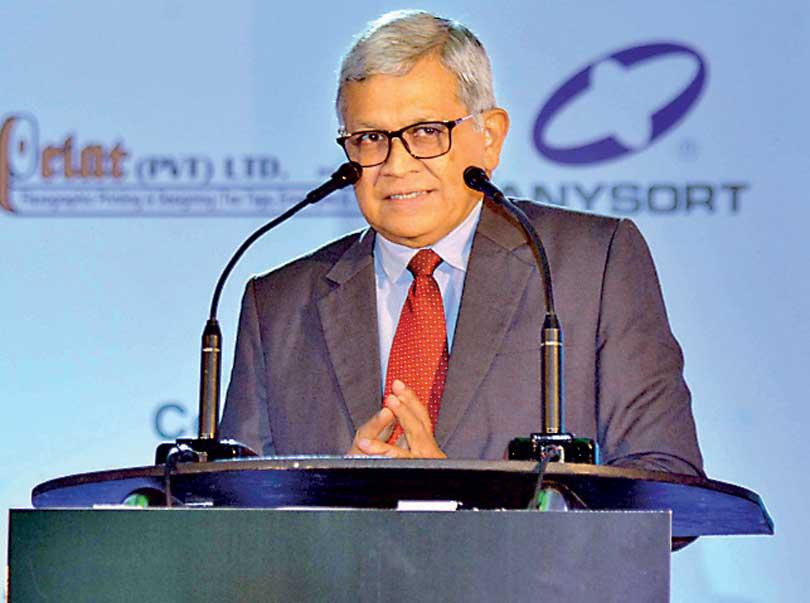Reply To:
Name - Reply Comment

Niraj De Mel
PIC BY SAMANTHA PERERA
By Nishel Fernando
Despite the temporary setback in tea production in Sri Lanka, due to the dry weather in August, the Sri Lanka Tea Board (SLTB) expects the tea output to exceed 260 million kilos this year and the prices to stabilise with winter buying during the next four months.
Addressing the Annual General Meeting of the Tea Exporters Association held in Colombo last Friday, SLTB Chairman Niraj De Mel acknowledged that the unusual “hot August” slowed down the steady recovery seen in tea production.
However, he was optimistic that the tea production in August might have recorded a marginal growth from 18 million kilos recorded a year ago.
As per the available data, tea production rose by 1.69 percent year-on-year to 155.82 million kilos in the first seven months of the year.
With the showers returning from early this month, De Mel is optimistic that the tea output will exceed 260 million kilos by the end of this year, recovering from the 26-year low in the previous year.
Meanwhile, the SLTB expects the tea auction prices to stabilise, with winter buying intensifying over the next four months.
Moving forward, De Mel stressed that the industry stakeholders along with the responsible government institutions need to work in tandem to regain the status as the world’s cleanest tea while focusing on high-value markets.
“We need to know what you want. We need a cohesive plan,” he told the tea exporters in attendance.
De Mel said that the SLTB and other responsible government institutions are working together to achieve the industry’s common objectives, rather than working in isolation.
He urged all stakeholders in the tea industry to come together to achieve these shared objectives.
He highlighted the rapidly dwindling number of tea pluckers as an urgent issue that needs to be addressed and called for the involvement of institutions such as the National Institute of Plantations Management (NIPM) in finding solutions.
De Mel also reminded exporters that they have a responsibility to convince the tea growers to produce high-quality Ceylon Tea.